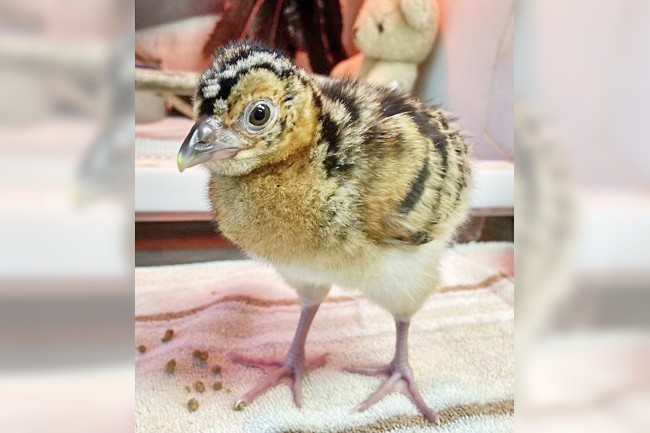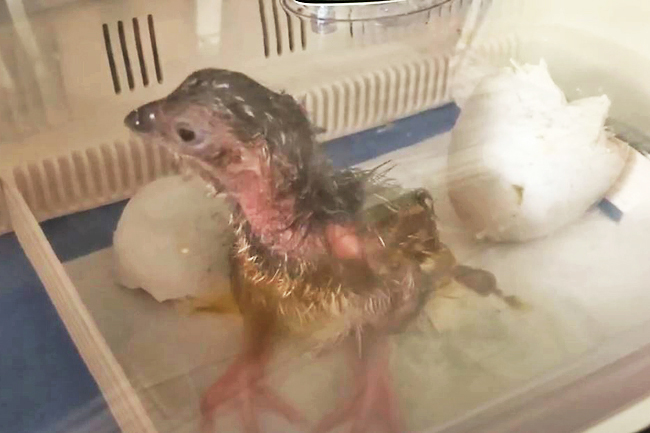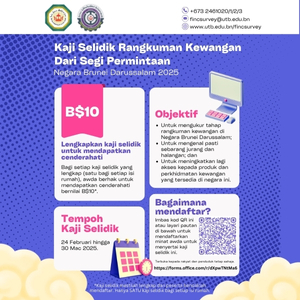Dana Hedgpeth
THE WASHINGTON POST – Two words – adorable and wow – seem to fit when it comes to two chicks that recently hatched at the National Zoo in Washington, DC, and are now being hand-raised by keepers.
The two female chicks are blue-billed curassows, which are considered critically endangered, zoo officials said. The first one, named Aluna, hatched on August 5, and her sister, Lulo, hatched on August 28. They’re being cared for at an off-exhibit spot.
Zookeepers said in a statement that they’re “thriving” and described them as being “confident and curious”.
They are the first offspring of their mother, Jackie, a six-year-old blue-billed curassow.
Their father, JB, is 16 and has previously sired chicks at another facility, according to officials. The parents were bred on the basis of their “genetic compatibility, personality, health and temperament”, as part of a recommendation from the Association of Zoos and Aquariums’ Species Survival Plan (SSP), experts said.


Jackie laid her first egg in early July and the other in late July.
Typically, female curassows incubate their eggs for 29 to 31 days, but Jackie didn’t “show interest in incubating her eggs”, zoo officials said in a statement. Experts said they realised that she “would not accept or bond with her chicks”, so they put the eggs in an incubator and said they believed hand-raising them would give them the “best chance of survival”.
The zoo caught the hatching of the chicks on video. Animal experts socially bonded with the chicks and gave them “adult feathers to cuddle under” and a mirror that helps socialise them when the keepers aren’t there.
Blue-billed curassows are native to Colombia and were once found in the northern portions of the country. But due to a loss of habitat, they’re now found in just a few areas in the tropical forest of Colombia.
The International Union for Conservation of Nature considers them “critically endangered”, and there are roughly 1,000 to 2,500 blue-billed curassows in the wild.
In facilities in North America, there are a total of 73 birds, including the two new chicks. Because there are more males than females, experts said the two new chicks at the zoo in Washington, DC, are “considered a crucial hatch for the population”.
“It was amazing to watch these precocial birds as their instinctual abilities to eat, perch and preen their feathers kicked in – all in the first day of life,” said animal keeper Heather Anderson in a statement from the zoo.
Usually for other birds, she said, “those milestones could take weeks to achieve”.
The zoo’s Bird House, where the chicks will live, is closed while it undergoes renovation. It is expected to re-open in winter 2023.





